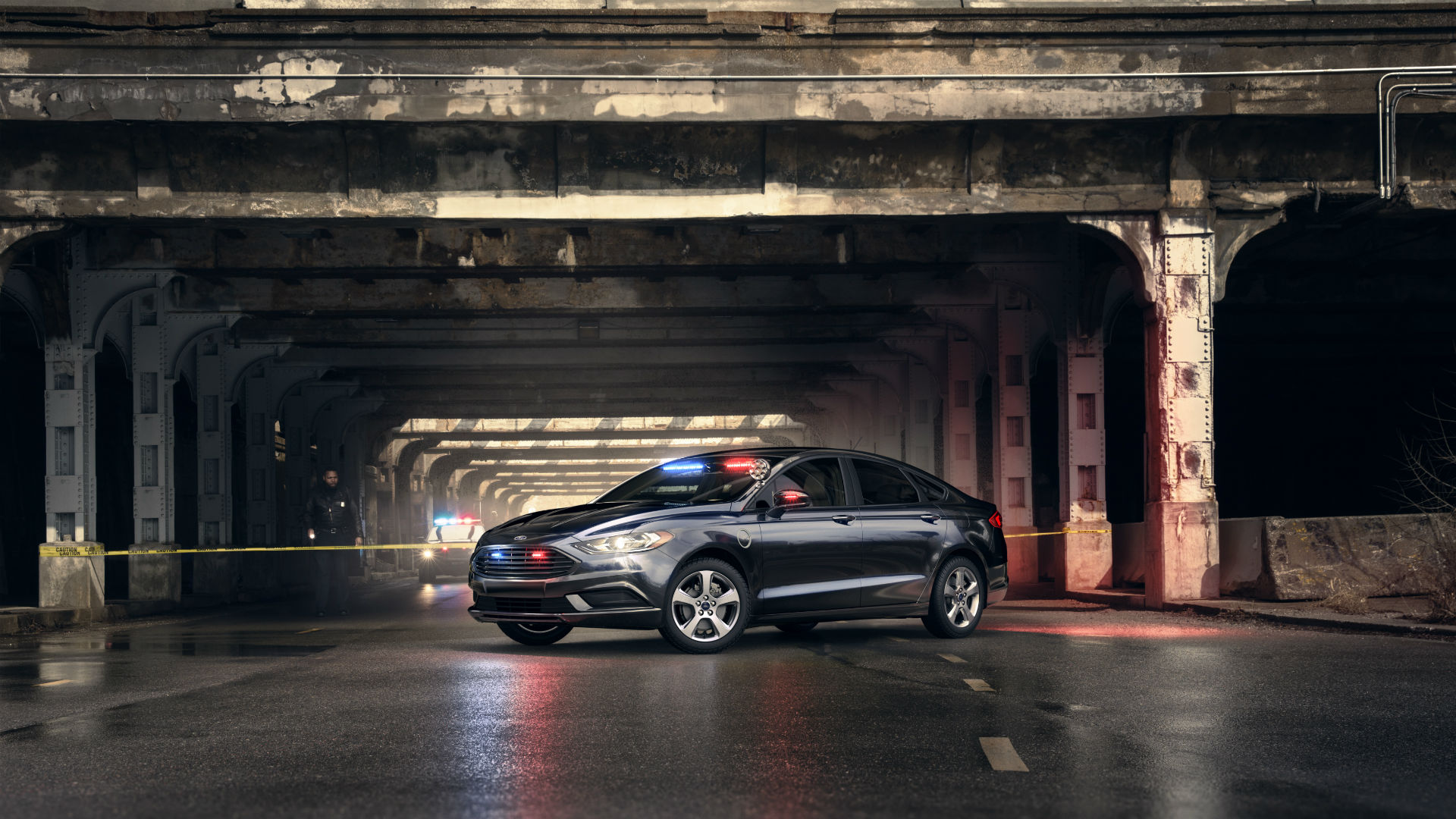

Ford submitted a patent application to the U.S. Patent and Trademark Office for an autonomous police car that can operate “in lieu of or in addition to human police officers.” It looks like RoboCop might come with four wheels and headlights instead of a helmet.
It’s worth noting upfront that a patent doesn’t a guarantee a technology will get commercialized, or that it will even work in the real world. The potential pitfalls of machines conducting police work have us feeling especially skeptical about this one. Regardless, Ford apparently believes self-driving cars could be the future of policing.
The patent application, first spotted by Motor1, describes a car that is not only autonomous, but able to interact with other devices, such as stationary speed cameras. The car would have its own cameras and equipment for detecting speeders, and even be smart enough to find hiding places, according to the patent application.
But that’s not all. The autonomous police car can connect with the vehicle it’s pursuing to confirm a speeding violation, and even issue warnings or speeding tickets. All of this relies on sophisticated artificial intelligence that, quite frankly, may not actually exist at the moment. But given the current level of controversy surrounding human police activities, it’s unnerving to think about AI issuing speeding tickets.
A self-driving car that takes over the job of human cops may be unfeasible, but it’s possible that Ford will try to deploy a less-sophisticated version of the concept. The Blue Oval has said its first self-driving cars will be “commercial grade” and aimed at fleet buyers, so they could be able to handle police duty cycles. It’s not hard to imagine a police car that can drive itself, but leaves the actual police work to humans.